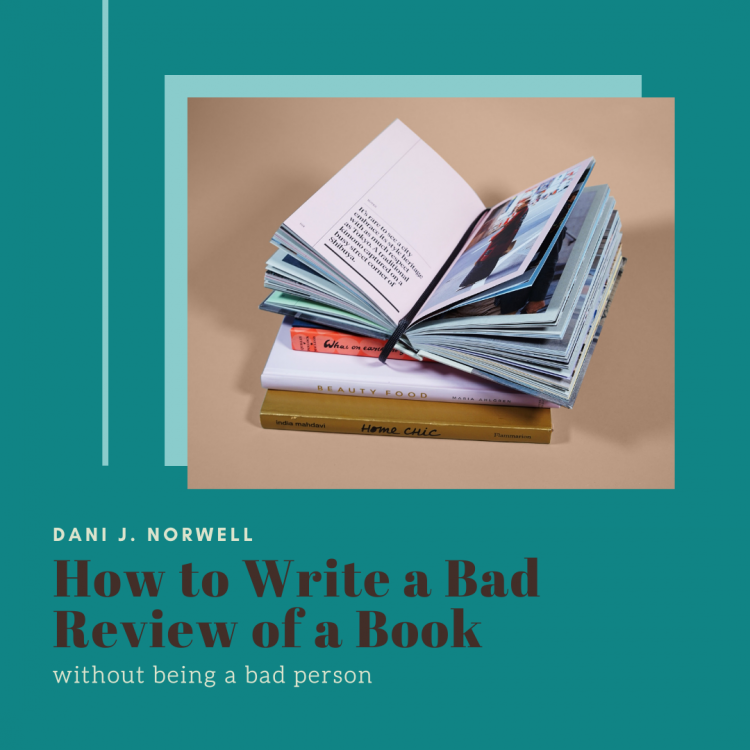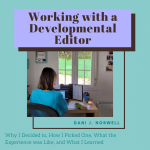Ahh, bad reviews—every new writer’s nightmare! Well, perhaps all writers’ nightmare? I’d like to think that you grow a thicker skin as you get further on into your career, gaining more confidence in your own skills and relying less on the validation of others. Either way, it’s fair to say that, as someone on the other end of reviews, I dread the prospect of getting negative feedback from readers. On the other hand, what else is a reader to do when they really didn’t enjoy a book?
Why you should write a review—even if it’s bad
Reviews are so important; there’s no denying that. They especially matter for new authors because having a certain number of reviews (positive or negative) is what will make our books more discoverable on sites like Amazon, allow us to reach more readers, and grow our careers.
In a world in which we very often make our purchases online, we as consumers are constantly checking the reviews to see if the product we plan to invest in is worth our money. As such, it’s important to leave negative reviews when you’re not happy…right?
Well, as a budding author myself, I have to admit that two contradictory tendencies have been growing inside of me:
1.) Because my own book is out there for the world to pass judgment on, I’ve grown even more uncomfortable about leaving negative reviews. I know so many indie authors like myself hang on every word and so I now think even more about the person on the other side of the feedback.
2.) However, as I read more craft books to hone my own writing skills, I’m learning more about what constitutes good writing. And that’s making me far more critical than I’ve even been about what I read. In the past, it was very unusual for me to ever give out 2- or 3-star rating, but now I do.
So, as someone who does occasionally have negative feedback on books, but who is also incredibly aware that this is a sensitive subject, I’ve realized that I needed to reach a compromise.
I believe we have to write fair, honest reviews whether they are positive or negative, but there are ways to go about doing so that are less nasty than some of the bad reviews out there.
I don’t claim to be an expert at this and I, myself, have committed some of the exact mistakes I’ll warn against here. However, I’m working to improve the way I approach negative book reviews and I hope that you will too. In the past, I just avoided them by not rating or reviewing anything, but this year I want to challenge myself to get out of my comfort zone and be honest about my opinions, without being too mean.
Personally, my choice of reading material is based almost solely on recommendation. I take what others who I trust say at face value and so I recognize that it would be misleading if I gave a positive review to book I truly didn’t enjoy it. I want to give back to the other readers and authors in my community by being honest about what I thought once I finish a book.
Even so, it feels very different to write a negative review about a product as subjective as a book. It’s not a piece of clothing that is objectively made of quality fabric or not. It’s someone’s heartfelt creation and it just may not have resonated with me—but that doesn’t mean it is inherently bad. So, this is how I now approach negative reviews.
How to write a bad review without being a bad person
1.) Actually write a review: This is something I rarely did in the past, but I’m making an effort to get better at it. Especially if you’re giving a low rating to a book, it can be really helpful to share your reasons why. That way, the author and potential readers aren’t left wondering. Instead, they actually know what it is about the book that you didn’t like. It’s completely possible that a writing style, character, setting, etc that you disliked will be someone else’s cup of tea! It’s helpful to pinpoint what it was about the book that made you give it a low score so that others can decide if that’s something they want to take into consideration or not.
2.) Be constructively critical: I think we all know the difference between constructive criticism and plain old makes-you-feel-awful criticism. Instead of saying blatantly negative thinks like “This book sucked” or “The story was so boring,” offer criticism that the author can actually use to improve. Perhaps you can say “The pacing was too slow for my liking” or “I couldn’t connect with the characters.” The more specific you can be, the better! For example, if you know what would have helped you to connect more with the characters, throw out the suggestion. You wouldn’t believe how much we, as authors, will latch on to those suggestions when they are delivered in a positive way. They truly may be used to improve our future work.
3.) Speaking of which, focus on YOUR experience: This is that typical “I” vs. “you” language that can make confrontations go far more smoothly. Instead of attacking the author and saying “She doesn’t know how to write” or “The plot was so predictable,” you can simply flip the script around to focus more on your personal experience. Statements like “I wasn’t a fan of the author’s writing style” or “Personally, I was able to see each plot twist coming” immediately feel far less combative, without actually changing the point you want to make.
4.) Add qualifiers to your review: What I mean by this is that it can be helpful to let others know if there are specifics about your expertise, your experience, your prior reading, etc that influenced your opinion about the book. Did you take three months to get through the book and possibly forget details for the storyline for that reason? Are you a subject-matter expert who might expect something different from the book than the average reader? It’s helpful to point out certain qualities you possess that may have influenced your review (but perhaps wouldn’t be factors for other readers).
Let me give an example: I recently wrote a review of A Good Girl’s Guide to Murder in which I said that I enjoyed reading the book and it did keep me wanting to read late into the night. However, because I’ve listened to the podcast Serial as well as watched the TV series Pretty Little Liars, the plot didn’t seem very original to me. For another reader who hasn’t listened/watched those other media, they will probably LOVE the book, but it was disappointing to me as someone who had already engaged with the same stories that I feel inspired the author.
5.) Whenever possible, say something positive: Finally, I find it’s nice to include at least one thing you enjoyed about the book so that your review doesn’t come across unnecessarily harsh. A Good Girl’s Guide to Murder definitely kept me intrigued and I appreciated that the ending involved plot twists that I hadn’t expected, so I mentioned that. It’s very unlikely that a book is so bad that I can’t find something honestly positive to say about it.
Note: Whenever possible, I like to “sandwich” my constructive criticism with qualifiers or positive feedback. That way, although the same exact information is delivered, it’s easier to take as a writer and it also comes across as more considerate and fair to other readers. If you’re unfamiliar with the (totally non-technical) term “sandwiching,” what I mean is that I might open my review by talking about what I enjoyed, transition into my constructive criticism, and close with a qualifier or two—essentially keeping the negative “sandwiched” between the positive.
In all honesty, I know getting a 1- or 2-star review will sting no matter how it’s delivered. Still, as a writer, I believe that if these guidelines were followed in a negative review of my work I would not only be less hurt by it, but I would also be more willing to take that respectful, constructive criticism to heart and use it to improve my future work.
To sum up, please keep in mind that these are my personal feelings. We all have our own personal preferences and what I appreciate in a book is not necessarily what the next person will appreciate—the same goes for reviews! What do you think should (or should not) go into a negative book review? I would love to start a conversation about it in the comments below.


Be the first to leave a comment